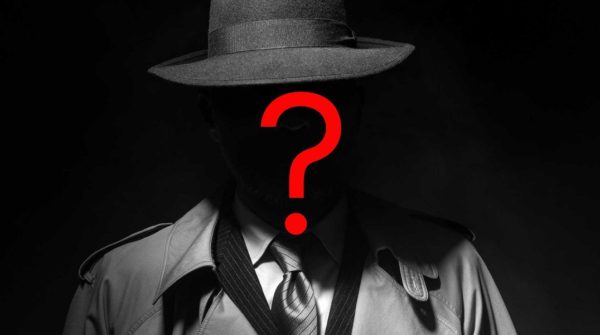First and foremost, a private detective is a professional: a person committed to his work and the daily work. A private detective’s philosophy as a professional is partly based on the company’s definitions of how they perform their duties and partly on the definitions of individuals. Many factors can intrinsically and extrinsically influence people’s perception of a private researcher’s complex job. What is the key element in this profession’s intrinsic philosophical understanding? To put everything into question is, of course, curiosity and scepticism about the facts. At DDS, we believe it is interesting to dwell a little more on the private detective philosophy that guides our performance steps.
The word philosophy means knowledge in itself. As a science, it is dedicated to the study of knowledge as a whole, the search for the reason for things, the search for it through reflection. Furthermore, depending on the context in which it is used, the term may have different connotations and meanings. One of them is about reflecting an activity’s full spirit: its ultimate goal and all the reasons. For example, one can talk about the philosophy of sport, education philosophy, etc. in this sense. In such cases, the term philosophy serves as a concept that includes the reason, motives, characteristics and objectives for the existence of such activity.
Etymological definition of the word philosophy
When we talk about a particular profession’s philosophy, the philosophy of work, it’s about the essential characteristics of the profession’s daily performance, its goals towards society, and the goals that people develop individually and collectively in their work. If we speak about nurses, for instance, we can conclude that nursing philosophy is based on honesty, empathy, and competence. All three phrases describe the acts that nurses carry out in their patient care on a daily basis. What do you need to do your job? Who motivates them every day to begin their day? In this sense, we are talking about a private detective’s philosophy: what identifies the private detective’s work individually? What ethical principles do they have as a profession and what is their goal for society?
And logically, as is obvious, the answer can be obtained. A private detective is seeking the facts anywhere in the world. Private investigators ‘ work makes them real specialists in all types of inquiries, searches, reviews and comparisons to find the true facts consumers are searching for. Such truths can be of any kind: from a person’s location or whereabouts to the authoritative history of submitting a job title candidate. The important thing is that the researcher is investigating to find the true and lasting facts. And this theoretical cornerstone of a private detective’s work finds doubt about its support so industry.
SKEPTICISM ABOUT EVERYTHING
Another concept such as the term philosophy, which has a Greek etymology, is the term scepticism based on the Greek word “scepticism” for science, doubt, investigation. Scepticism refers to the inability, as the term philosophy, to find the absolute truth. A term that truly defines the complexity of a private detective’s job, who has to investigate, find the facts needed, question everything, while taking no facts into account until they prove to be true.
And here’s one of the biggest complications in a private detective’s daily work: sometimes the starting point you face isn’t an established fact. That is, sometimes as a starting point for research there are customers who provide the wrong facts. Or half-truth about it. People are sometimes reluctant to admit that they need a private detective’s services. This is due to the film and television profession misconception, which means that people often have an idealized image, but they also feel a little threatened by a private detective’s work. So they don’t offer all the initial information, they conceal elements or disguise them.
That is why the scepticism that is part of the philosophy of a private detective casts doubt on everything, including the facts presented in the beginning, in order to obtain the evidence and facts that the client asks for. The tendency to doubt anything becomes an inherent feature of the private detective’s daily work, and it requires them to use all the methods and different technology to explore which tools have been entrusted and, above all, to support the component of the final report with evidence to support the truth of the facts. The rule must always be followed “take nothing for granted and question everything.”
A professional private detective’s number one enemy is prejudice and habit of assuming the truth before testing it. Those two can interfere with the work or even result in a failure to conclude and resolve a case. For example, an investigator in an insurance company investigating fraud may have to pursue a woman who is said to be pregnant. This birth will not be suspected by a private detective. He’s going to have to doubt the initial reality. It’s not unfair, it’s not ill will: it’s just part of this profession’s ideology. It’s also what helps a private detective to begin that investigation as if it were a blank page that will ultimately help him get more reliable and quicker results.
Prejudice that is easily ignored (and thus not usually known to the person) is to feel that personal investigations are easier than business investigations. There are no simple inquiries, and understanding that is part of this inherent suspicion that should define a private detective’s work.
THE ABILITY TO QUESTION EVERYTHING AND OBTAIN INFORMATION
This scepticism is unable to travel alone in a private detective’s daily work. Whether it is a matter of detecting the authentic use of the tenant living in a rented property or finding a biological parent of someone who grew up as a foster child, a private detective is nothing without his ability to investigate and get to the bottom of the questions that he has been asked.
The ideal complement to the ability to accept that truth is hard to find and that has to be pursued tenaciously is the technique to do it, and that’s what a detective’s daily work is about. For example, when thinking about the devices used by private detectives: even if they use state-of – the-art technology and solve some technical problems, they are nothing without a detective’s practical song. Continuous duties for a detective are to read, train and plan to obtain the information obtained.
An investigator must be able to deal with people, challenge them, and yet remain anonymous. He must be able to search the internet and door-to-door wonder. In social networks, he will be able to discern valuable information, but also simply to follow a person. Not all of these skills are created from nothing, as they are focused on strong technical, moral and technological grounds that each accredited detective agency must have. That’s why a statute governs a private detective’s work: the sophisticated technique is legally valid and thus complements the inquisitorial personality deeply embedded in a private investigator’s philosophy.
AWAY FROM THE ETHICAL GREY AREAS
A private detective’s integrity is their power. One of the philosophical pillars of this profession is the daily work behaviour and the ability to make ethical decisions on the go. The problem is to better distinguish the various levels underlying customer statements and demands and then retain this direct approach to obtain the information needed. They say the private detective’s ethical behaviour is important to theory, and every professional private investigation should have it: the layer of light that decides who is an amateur detective and who is a true professional.
All the elements that we have mentioned as foundations of a private detective’s philosophy are stacked on each other to create the prestige of a private detective agency and, in particular, of each investigator. This is so difficult to build, so you have to pay attention to every interview with a potential customer, how you get the results, how you present the results to the customers, and the customers ‘ feedback.
Occasionally, because they do not adhere to their code of ethics, professional detectives are required to refuse cases. Or even withdrawing their participation in a case if the client asks the detective to act in a manner that is likely to risk his reputation. It’s not easy, but for a private detective, who won’t be willing to give up, it’s something really important. It is your cover letter and represents the application of the principles that give the professional activities strength.
The private detective’s philosophy is the skeleton on which their daily actions are built day after day, with robust tools facing the wide variety of cases they may encounter, with their ethical and legal intricacies, their technical difficulties, and the responsibility that demands a profession that faces its practitioners in their personal and corporate level with difficult situations.






Leave A Comment